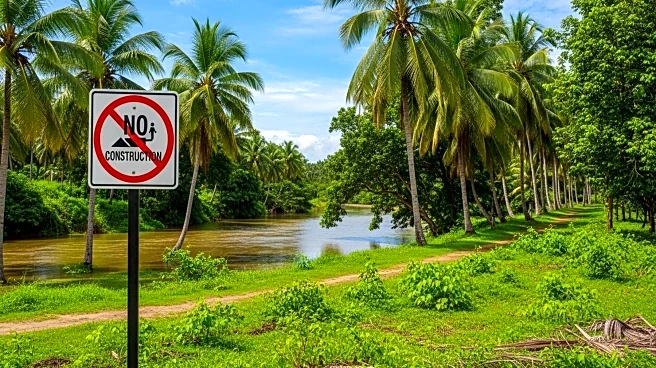What's Happening?
The government of Bali has announced a ban on the construction of new hotels, restaurants, and commercial facilities on agricultural land, including rice fields, in response to severe flooding events. These floods have caused significant damage and loss of life, prompting the government to take action to protect the island's ecosystems and reduce the risk of future natural disasters. The decision aims to preserve Bali's agricultural resources and maintain its natural beauty, which is threatened by overdevelopment and climate change.
Why It's Important?
This move is crucial for Bali's long-term environmental sustainability and resilience against climate change. By halting the conversion of agricultural land for commercial use, the government seeks to mitigate flood risks and preserve vital agricultural resources. This decision reflects a growing awareness of the environmental impact of mass tourism and the need for sustainable development practices. The preservation of Bali's natural landscapes is essential for maintaining its appeal as a tourist destination, which is a significant contributor to the local economy.
What's Next?
The new regulations are expected to take effect by the end of 2025, aligning with Bali's 100-year development plan focused on sustainability. The government hopes to balance tourism development with environmental protection, ensuring that the island's growth does not come at the expense of its natural resources. This policy may slow the pace of new developments but is anticipated to benefit Bali's tourism sector in the long run by preserving its unique cultural and natural attractions.
Beyond the Headlines
The decision to ban new commercial developments on agricultural land highlights the broader issue of climate change and its impact on island nations like Indonesia. As extreme weather events become more frequent, sustainable land-use practices are increasingly important for reducing vulnerability to natural disasters. Bali's approach may serve as a model for other regions facing similar challenges, emphasizing the need for responsible tourism and environmental stewardship.










